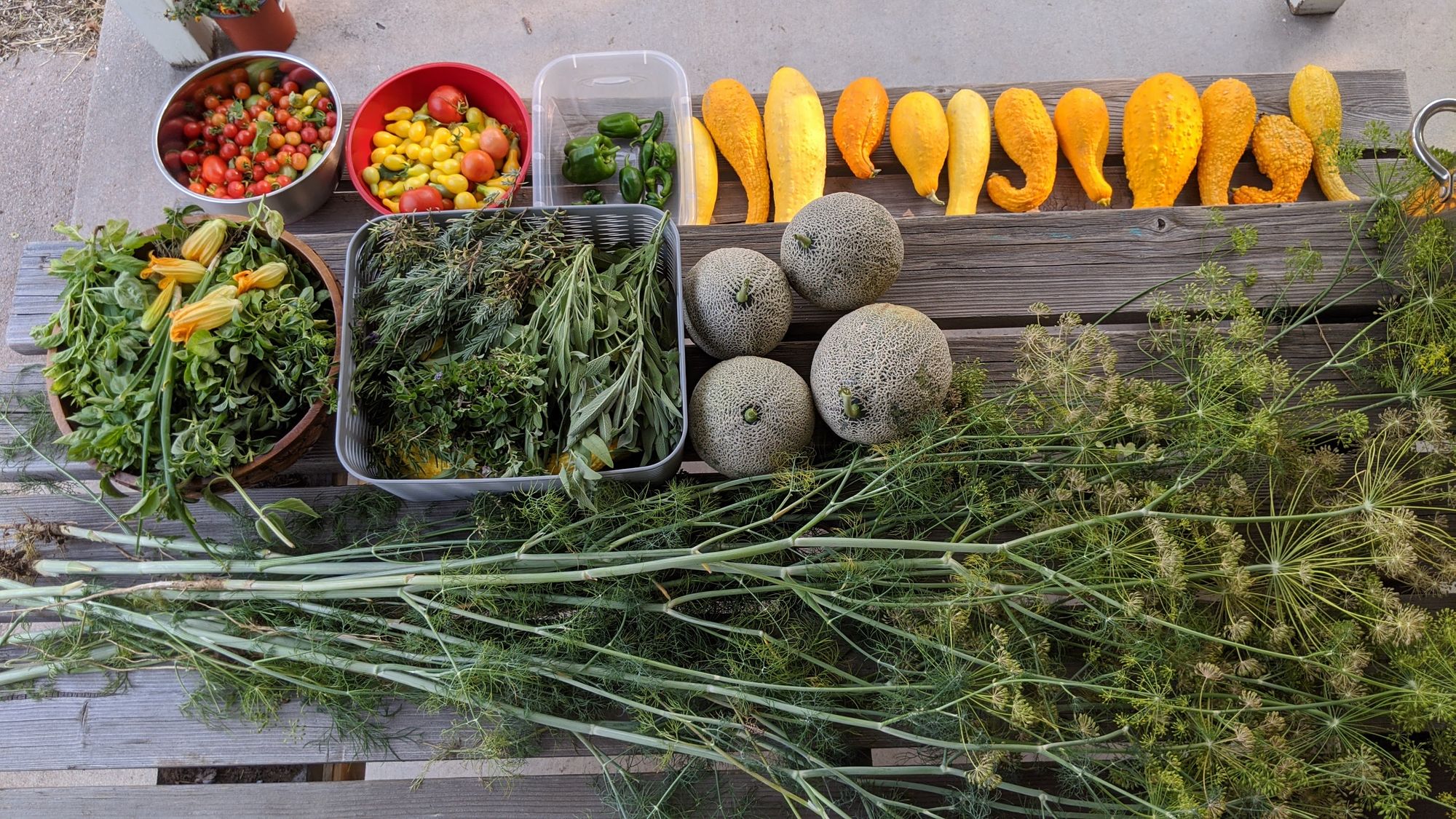Before the pandemic, I spent very little time in my yard. I kept telling myself I'd get around to it, but my work as a web developer and my activism trying to tackle the "big" problems our world faces kept me in front of a computer screen most of the time- reading articles, attending meetings, building websites, signing petitions and phonebanking.
Our neglected, barren yard meant we looked elsewhere for connection. We'd go on hikes at state parks, or play at neighborhood parks when we wanted to enjoy the outdoors.
When the pandemic hit we were forced to stay home more than ever before. Even the park down the street was roped off.
I looked out at our yard, one of the few places we could be and felt sadness at the vast swaths of dirt. It struck me that in a world where so much is out of our control, one of the few places I did have influence over, I wasn't even living my values with.
This poem by Jane Goodall really encapsulates what I was experiencing.
Stopping and Finding Home
There in the mostly dirt yard I found a spot where there was grass returning. That little spot became my refuge. I went out there after work in the late afternoon and would pull out the Tribulus terrestris (aka goatheads, aka hippie killers) competing for that space.
As the days got warmer, the late spring rains came, and I kept at it with the weeding, the grass filled in more and more. I now had a spot I could lay down on my back and look up at the clouds.
That little spot became my refuge. I would leave behind the news, the social media chatter, the pandemic and just listen to the world around me. It was restorative in a time where I needed restoration more than ever before.
Big Change Comes from Small Acts
I had known the mantra "Think Globally, Act Locally" since I was a teenager, but reflecting back, I realize now how much I was doing the former but little of the latter.
Things started to shift for me when I read the book Emergent Strategy, which builds on that concept - noticing how,
"The crisis is everywhere, massive massive massive.
And we are small.
But emergence notices the way small actions and connections create complex systems, patterns that become ecosystems and societies."
– adrienne maree brown, Emergent Strategy
And while I read this back in 2017, I think it was in 2020, forging connection with the little plot of land I lived on, that I really started to live out the lessons of emergent strategy.
After restoring that little area of grass, we decided to start a garden (like so many did last spring!). As I was outside more I noticed the wildlife around me, really for the first time. I noticed the chickadees that hollowed out a nest in a tree. I watched in amusement the squirrels scrambling from tree top to power line to rooftop. I watched one of the alley cats crouch in that grass (it was now getting pretty tall) waiting to pounce on a butterfly.
The gardening also brought us closer to our neighbors. Our neighbors to the north gave us advice on our struggling herb garden. Our neighbors to the south offered us some extra lumber they had when we were building our raised garden beds.
We were now much more concerned and aware of the weather outside. Before we could ignore it, spending most of our time indoors in front of various screens. Now we needed to know when the last frost would happen, when it would get scorching hot so as to be sure to water the plants enough.
I also got really into the moon phases and scheduling some of the rhythms of my life around them. The waxing crescent for scheming up a new project, the waxing gibbous to put the plan into action, the harvest moon to wrap it up, the waning gibbous to share what my accomplishments with others, and the waning crescent as a time to rest and recharge. It has really helped stave off the blursday feelings.
Harvesting What We Sowed
That summer and fall we reaped what we sowed. Again, that sense of control and connection in a world unhinged by racism, climate catastrophe and pandemic was life saving. We swapped some of our harvest with our neighbors and friends.

And it really is fitting. This renaissance of local gardening is one answer to the crises we're living through. The rise of diseases like COVID-19 are a result of the rapid advance of industrial agriculture into biodiverse ecosystems, breaking the natural disease barriers that used to exist between us and other species. An antidote to that is shifting our food systems to local, sustainable ones, that builds up biodiversity rather than tearing it down.
As Jane Goodall, said in her poem,
"This moment can lead us back home, that's our test.
It starts as a whisper, a word on the air.
That can't quite be heard, but you know that it's there.
It then spoke like thunder, until we all moved.
And we could!
And we did!
And it's done.
She's renewed."
This shift I've made and the work that has followed still sounds like a whisper, but I have returned home.